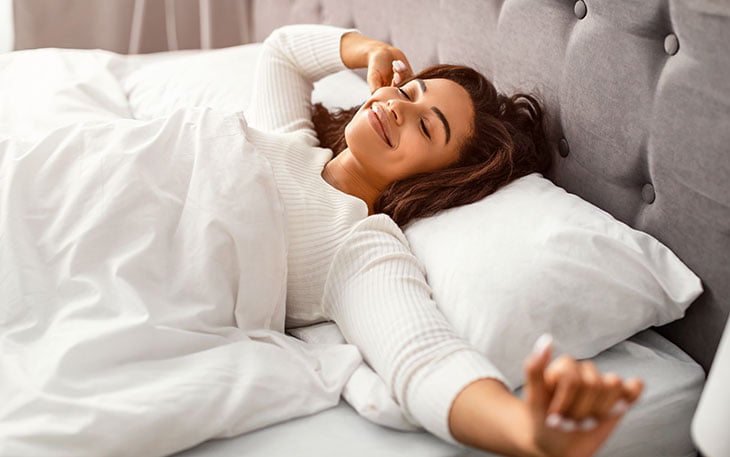In our fast-paced world, getting a good night’s sleep is often easier said than done. Yet, quality sleep is crucial for our overall well-being, impacting everything from our mood and cognitive function to our physical health. If you’re struggling with sleep or simply want to improve your rest, this guide will provide you with actionable tips to help you achieve more restful and rejuvenating sleep.
Understanding the Importance of Sleep
Before diving into the strategies for better sleep, it’s essential to understand why sleep is so vital. During sleep, your body undergoes critical repair processes, consolidates memories, and regulates hormones that influence everything from appetite to stress. Poor sleep can lead to a host of problems, including reduced productivity, mood disorders, weakened immune function, and even chronic conditions like heart disease and diabetes.
Establishing a Consistent Sleep Schedule
One of the most effective ways to improve sleep quality is by establishing a consistent sleep schedule. Going to bed and waking up at the same time every day helps regulate your body’s internal clock, making it easier to fall asleep and wake up naturally. This consistency is especially important on weekends, as significant deviations from your weekday routine can lead to sleep disruptions.
Creating an Optimal Sleep Environment
Your sleep environment plays a critical role in the quality of your rest. Here are some key factors to consider:
- Comfortable Mattress and Pillows: Invest in a good-quality mattress and pillows that provide adequate support and comfort. A mattress should be replaced every 7-10 years to ensure it remains supportive.
- Room Temperature: The ideal sleep environment is cool, typically between 60-67°F (15-19°C). A cool room helps lower your body temperature, which is necessary for initiating sleep.
- Lighting: Keep your bedroom as dark as possible. Consider using blackout curtains or an eye mask to block out light, and avoid exposure to screens (phones, computers, TV) at least an hour before bed, as the blue light emitted can interfere with melatonin production.
- Noise Control: Minimize noise disruptions by using earplugs, a white noise machine, or soft background music. If your environment is too quiet, a white noise machine can provide a soothing background sound that promotes sleep.
Developing a Relaxing Bedtime Routine
Establishing a calming pre-sleep routine signals to your body that it’s time to wind down. Here are some activities that can help:
- Reading: Opt for a physical book or e-reader without a backlight.
- Meditation and Deep Breathing: Practicing mindfulness meditation or deep breathing exercises can reduce stress and prepare your body for sleep.
- Warm Bath or Shower: Taking a warm bath or shower can help lower your body temperature and relax your muscles, making it easier to fall asleep.
- Avoiding Stimulants: Caffeine, nicotine, and even heavy meals can interfere with sleep. Try to avoid these at least 4-6 hours before bedtime.
Monitoring and Improving Sleep with Technology
In today’s digital age, several smartphone applications can help you monitor and improve your sleep patterns. Here are a few highly recommended apps:
- Sleep Cycle: This app analyzes your sleep patterns and wakes you up during your lightest sleep phase, helping you feel more refreshed.
- Calm: Known for its guided meditations and sleep stories, Calm is designed to help you relax before bed.
- Headspace: Another meditation app that offers sleep-specific content to help you unwind.
- Pzizz: Pzizz uses a combination of music, voiceovers, and sound effects to help you fall asleep faster.
- Sleep Score: This app tracks your sleep patterns and offers personalized tips for improving your sleep quality.
These apps can provide valuable insights into your sleep habits, helping you identify areas for improvement. However, it’s important to use them wisely; avoid excessive screen time close to bedtime, and consider switching your phone to “night mode” to reduce blue light exposure.
The Role of Diet and Exercise
What you eat and how much you move can significantly affect your sleep quality. Regular physical activity, particularly aerobic exercise, can help you fall asleep faster and enjoy deeper sleep. However, try to avoid vigorous exercise close to bedtime, as it may have the opposite effect.
In terms of diet, it’s best to avoid large meals, caffeine, and alcohol before bed. While alcohol might make you feel drowsy, it can disrupt your sleep cycle and prevent you from getting restorative sleep. Instead, opt for light snacks if you’re hungry before bed, and include foods rich in tryptophan, magnesium, and melatonin, such as turkey, almonds, and cherries, in your diet.







One thought on “Maximizing Sleep Quality: A Guide to Better Rest”
Comments are closed.